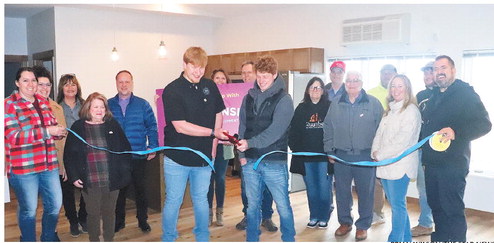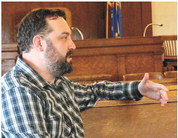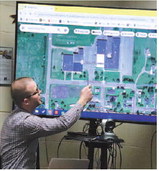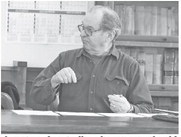Committee members criticize resolution


The Marathon County Environmental Resources Committee last week Tuesday heaped criticism on a proposal by supervisor Jean Maszk, Mosinee, to have the state legislature restore county powers needed to halt a Reef deposit gold mine in the town of Easton. After a series of critical questions, Maszk, undeterred, said she would withdraw a proposed resolution calling on state government to reverse Act 134, the law that ended a metallic mining moratorium in the state, and return with another one in the future.
“Our water is precious, we have to take care of it,” said Maszk, “We already are dealing with enough pollution in our water with manure and PFAs. What else do we have to put up with? I can’t boil my water every time I want to make a cup of coffee. There are not enough filters in the world that will clean it. You start putting these dangerous chemicals in the ground…that could be ruined for 100 years. This state needs to get its butt going and fix this.”
Committee chairman Jacob Langenhahn, town of Marathon, challenged the resolution from several angles and said that it was not a fact that Green Light Metals, Vancouver, would pollute the environment with its proposed mine.
He said the resolution would never fly because it called on the legislature to exempt only Marathon County from Act 134, not the entire state. He said any change to state mining policy had to be statewide.
Langenhahn noted that the state assembly and senate passed Act 134 in 2017 by wide margins and, with most of the members of the legislature still in office, he was skeptical that these officials would change their mind on the issue.
Langenhahn said he feared that the state legislature would react to the proposal by giving counties no regulatory power over metallic mining.
“This could jeopardize what little local control we have,” the supervisor said. “That’s a very big concern I have with this policy.”
Langenhahn read to Maszk the various permits that mining company Green Light Metals, Vancouver, will need to get before mining could take place. He said that the companies had to meet the same standards as any wastewater treatment plant. “This is hardly the wild West,” he said.
Langenhahn questioned Maszk’s expertise to propose the resolution. He questioned whether she knew what a “cone of depression” was. This was a technical phrase found in the resolution.
Maszk had to admit she did not know the meaning of the phrase.”I am no expert,” she said.
Langenhahn asked if it was even theoretically possible that the Reef mine could be mined safely without pollution.
Maszk replied no. “Mining will pollute, no matter what,” she said. “Period.” The supervisor said she was worried that a county ordinance only required a polluting mining company to clean up a sulfide mine discharge if if it was “practical.” She called that an unacceptable loophole.
Non-voting committee member Marilyn Bhend, town of Johnson, offered Maszk a lesson in Madison politics. She said that her resolution would likely only “tick off” members of the legislature who could deny grants to the county as retribution. “It’s a political game down there on both sides,” she said. She said the county should only consider a resolution after Maszk got the support of some legislators to support it.
Committee member Tony Sherfinski, Schofield, said that while Maszk made some “excellent points” she did not fully appreciate the economic impact of a gold mine in the eastern half of the county. He said Marathon County would depopulate and lose employers if the county stood in the way of economic development opportunities. He argued that industry had learned over the past half-century to operate without polluting the environment.
One committee member, David Oberbeck, said Maszk was right to try and protect the county’s local water resource. He said in a world pummeled by drought, fires and hurricanes, the county’s water resource was more precious than gold. “The economics of Wisconsin is water, not mining,” he argued.
Maszk said she appreciated the “conversation” with the committee and would return with a stronger resolution. “You have to start somewhere,” she said.





